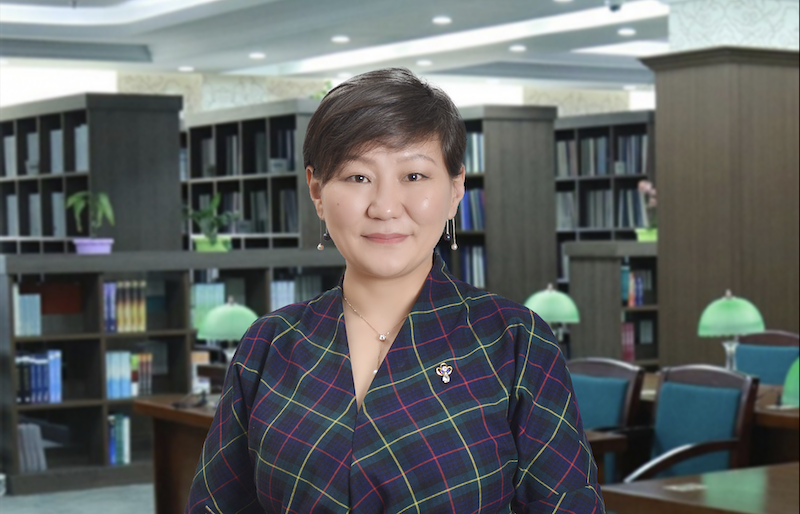Orkhon Gantogtokh
As a Public Scholar, I am driven to broaden the concept of doctoral education beyond industrialized nations. By bringing the perspectives of developing countries, I hope to enrich the discourse and understanding of doctoral education on a global scale. Overall, being a Public Scholar empowers me to lead doctoral education reform in my country as a strong change agent.
Research description
This research project aims to investigate the dynamics of doctoral education in Mongolia in the context of global changes in higher education. Despite having a high number of universities and a relatively high university enrollment rate, Mongolia faces challenges in building its research capacity and high-skilled workforce. This study will delve into the underlying factors, including externally imposed education policies and conflicting reform ambitions, which may contribute to this paradox. By examining the socio-cultural, geopolitical, and contextual barriers, as well as potential advantages, this research seeks to provide insights that can inform the development of doctoral education in Mongolia and, ultimately, strengthen the country's research capacity.
What does being a Public Scholar mean?
To me, being a Public Scholar entails three significant aspects. Firstly, it offers a unique chance to actively engage with both the doctoral education community and the broader public through my research. By placing doctoral education at the heart of research capacity building in Mongolia, I aim to foster a stronger sense of research community and collaboration. Secondly, it allows me to serve the public good by bolstering my country's research capacity through the enhancement of locally established doctoral education programs for the country’s economic and social development. Lastly, as a Public Scholar, I am driven to broaden the concept of doctoral education beyond industrialized nations. By bringing the perspectives of developing countries, I hope to enrich the discourse and understanding of doctoral education on a global scale. Overall, being a Public Scholar empowers me to lead doctoral education reform in my country as a strong change agent.
In what ways do you think the PhD experience can be re-imagined with this Initiative?
With the Public Scholars Initiative, doctoral education is enriched by embracing diverse perspectives, critically examining the influence of neoliberalism, exploring research traditions beyond Western contexts, and recognizing the distinct challenges faced by developing countries, particularly those experiencing societal transformations in post-socialist regions. Adopting a balanced and value-based approach is vital to ensure that doctoral education effectively caters to the needs of individuals, society, and academia as a whole.
How do you envision connecting your PhD work with broader career possibilities?
My research project is closely aligned with my career goal of establishing a modern, research-intensive university in Mongolia. I firmly believe that enhancing doctoral education is pivotal to achieving this objective. I have taken significant steps toward this goal by doing my Ph.D. research on envisioning the future of doctoral education in Mongolia. Upon graduation, I intend to contribute to this vision by joining the university management or the Ministry to implement the project to reform doctoral education I will design based on my research work.
How does your research engage with the larger community and social partners?
In the present context, doctoral training involves not only professors and individual Ph.D. students but also a diverse array of stakeholders, such as university administration, policymakers, businesses, funding organizations, professional associations, research institutions, quality-assurance agencies, and the community. For my research, I aim to activate the participation of Mongolian doctoral education stakeholders in policymaking, utilizing both social media and scholarly dialogue as channels of engagement. To achieve this, I will employ advocacy papers, interviews, posts, blogs, pages, workshop and training sessions, and conferences as effective means of interaction and collaboration.
Why did you decide to pursue a graduate degree?
My academic and professional background in higher education, along with my unwavering commitment to enhancing my country's research capacity for social and economic development, drives me to pursue a graduate degree. My aspiration is to explore the possibilities of transforming doctoral education in the paradoxical context of Mongolia, a developing, post-socialist, Inner Asian country.
Why did you choose to come to British Columbia and study at UBC?
UBC’s strong expertise in academic leadership and visionary approach to doctoral education resonates with my career ambition of becoming a resourceful academic leader and a potent agent of change in doctoral education in Mongolia. Moreover, I was eager to be supervised by leading researchers in doctoral education. Prof. Lesley Andres’s studies on doctoral education have been invaluable in shaping the structure and focus of my intended research. Additionally, the university's funding support for doctoral students is particularly crucial for international students like myself. It provides essential assistance and enables us to pursue our academic aspirations.
Being a Public Scholar empowers me to lead doctoral education reform in my country as a strong change agent.





